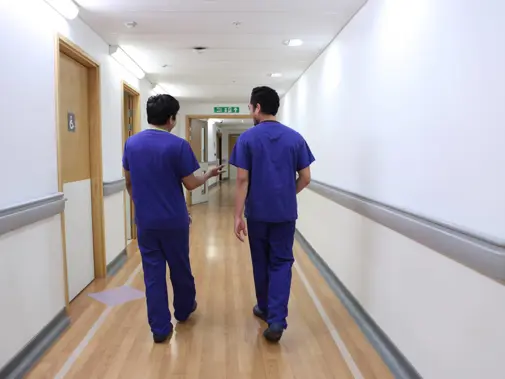It’s now been a few months since becoming your chair with a promise to keep you updated and informed. In the last blog, we set out priorities to deliver on.
You’ve played your part in pay restoration campaigns across the UK, with registrars striking for pay in England, Wales and Northern Ireland since October. Your representation has been transformed so that your reps are now elected with a UK-wide, democratic mandate. Public health registrars also made a powerful contribution to the BMA’s 2024 public health medicine conference in February, and they’ve influenced forthcoming BMA policy on smoking, drinking and youth vaping.
The most important priority, though, was giving you and your colleagues the tools to fight for better conditions locally.
The last few years have often seen you get more on-call work, more unpaid overtime, less protected teaching, and higher training costs (we estimate roughly £10,000 over the programme now(1)) while the majority of you don’t get access to the tools and facilities you’re entitled to for your rest and wellbeing(2). We can all do something about this, though. The last few months have seen registrars across the UK make wins whether that be gaining new rest days, getting access to proper office space, or securing access to exception reporting.
A wellbeing campaign has now been launched, providing tools for you and all your colleagues to improve your working lives. We also continue to offer a free, confidential 24/7 counselling line and peer support service open to all doctors and medical students on 0330 123 1245.
Our wellbeing priorities in public health are:
- Proper access to exception reporting and junior doctor forums in England and to regular rota monitoring in the devolved nations so that overtime is compensated and rotas updated to prevent fatigue and burnout
- A central workplace with shared office and lounge/rest space to support wellbeing
- Accurate work schedules and rotas delivered on time so registrars can plan their lives
- Clear local agreements on compensatory rest, cover and locum pay when working non-residential on-call to prevent rota gaps, fatigue and burnout
- Regular protected, registrar-only regional teaching to support proper training.
You are all entitled to all of these via your contracts, and agreements your employers have made with the BMA. To help you and your colleagues locally organise and campaign for these, here is a guide that can be adapted. It gives advice on how to build support for change and how to raise these issues directly with employers at your LNCs (local negotiating committees).
You can also join the LNC for your lead employer and get training and accreditation. Local reps are crucial for local wins. To further help, detailed explanation and justification on these points is available here. You can also get your contracts checked for free any time.
To support your efforts, we’ve also written to your LNC chairs, industrial relations officers, and guardians of safe working urging them to support our priorities and improve your conditions. We’ll also be holding an open meeting in July which all public health registrars can attend; details will be sent out shortly.
Finally, your conference in February saw registrars set a number of new policies for your committee. These include further work on registrar disparities, rebuilding our profession, and further work on global health, in the context of new and ongoing conflicts across the world. Our links with the Faculty of Public Health have allowed us to contribute to their work on equality, diversity and inclusion as well as global health placements. You will all be surveyed in the coming months about your views on nomenclature, roles and scope for public health specialists, to inform our approach.
Dr Deiniol Jones is a public health registrar and chair of the BMA public health medicine registrars subcommittee
(1) This includes annual FPH membership, one sitting of the DFPH and MFPH exams respectively, annual GMC and indemnity fees, a CCT fee, and ongoing BMA subscriptions. The cost is likely to be higher for those working LTFT, taking statutory leave or undertaking out-of-programme work.
(2) In a recent survey of public health registrars across the UK on medical/dental contracts (n=58), we found that over 60% did not have access to exception reporting or rota monitoring.

